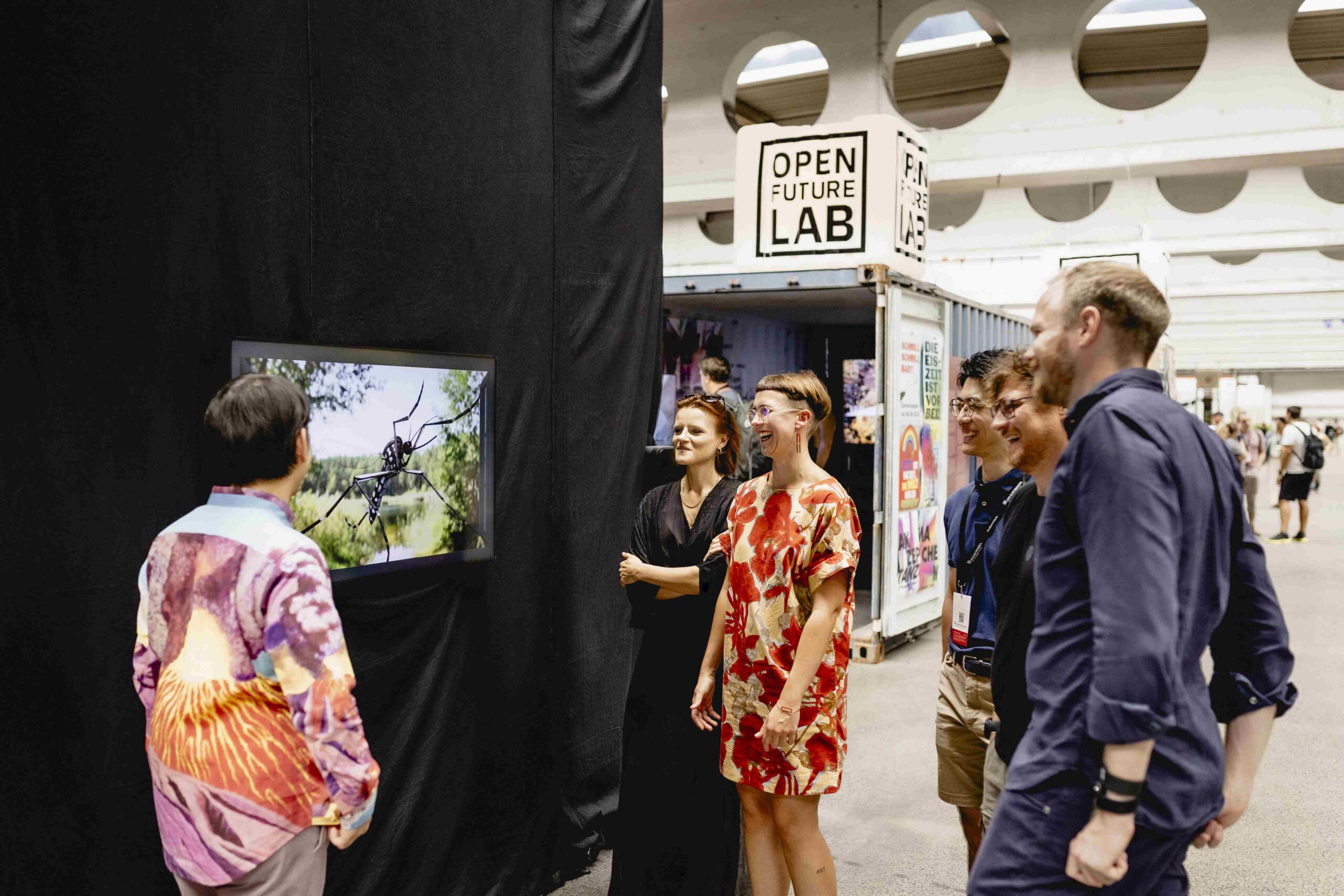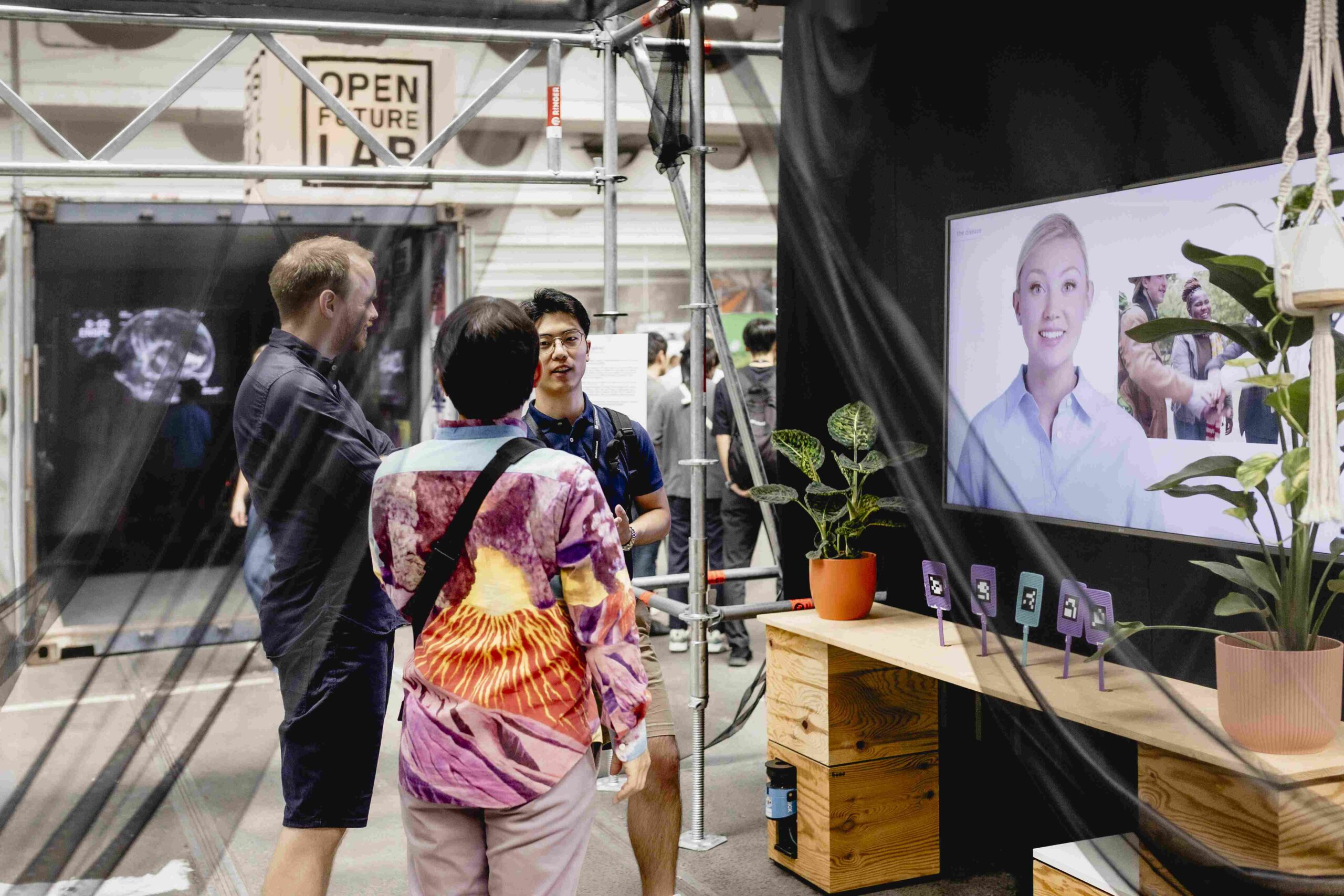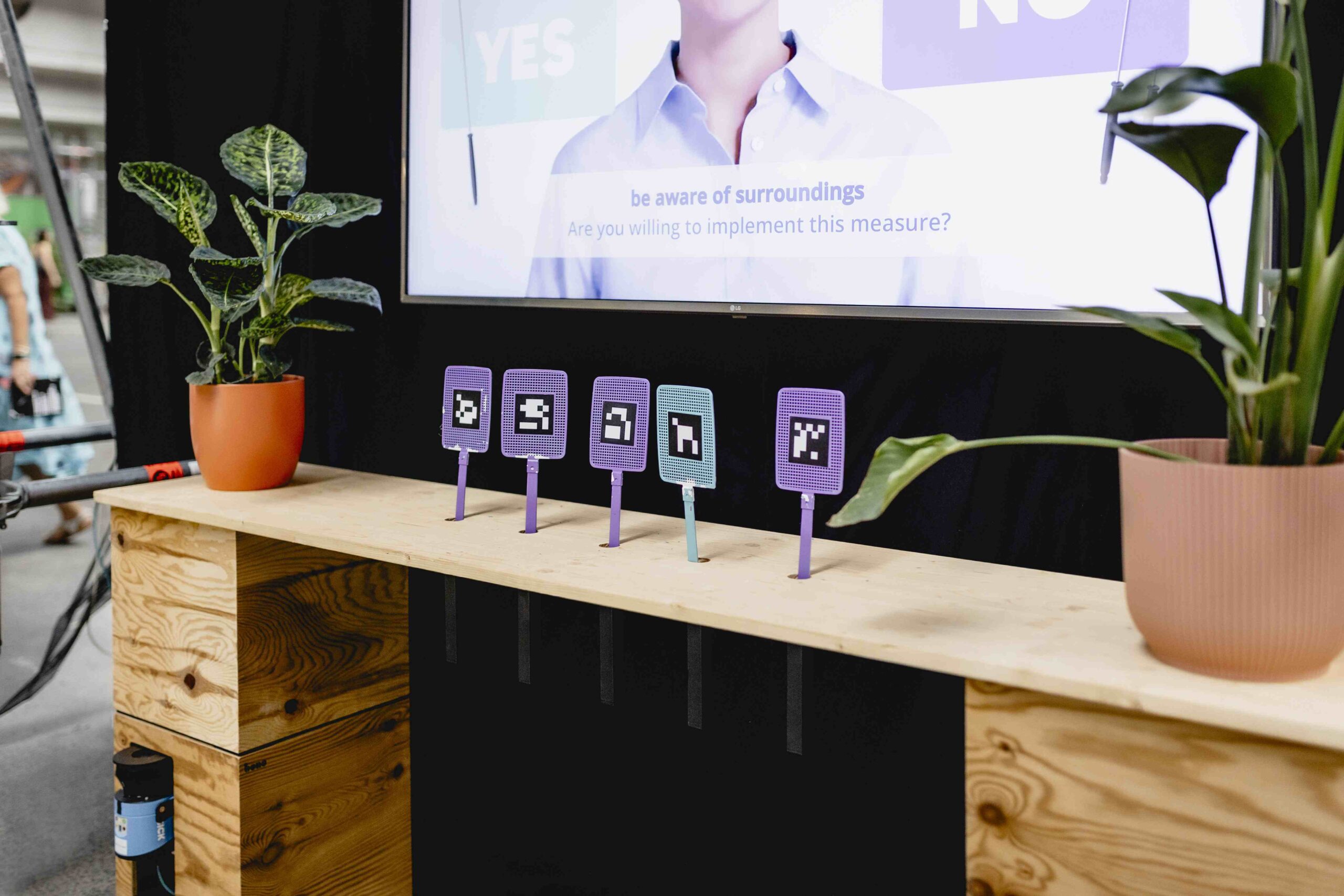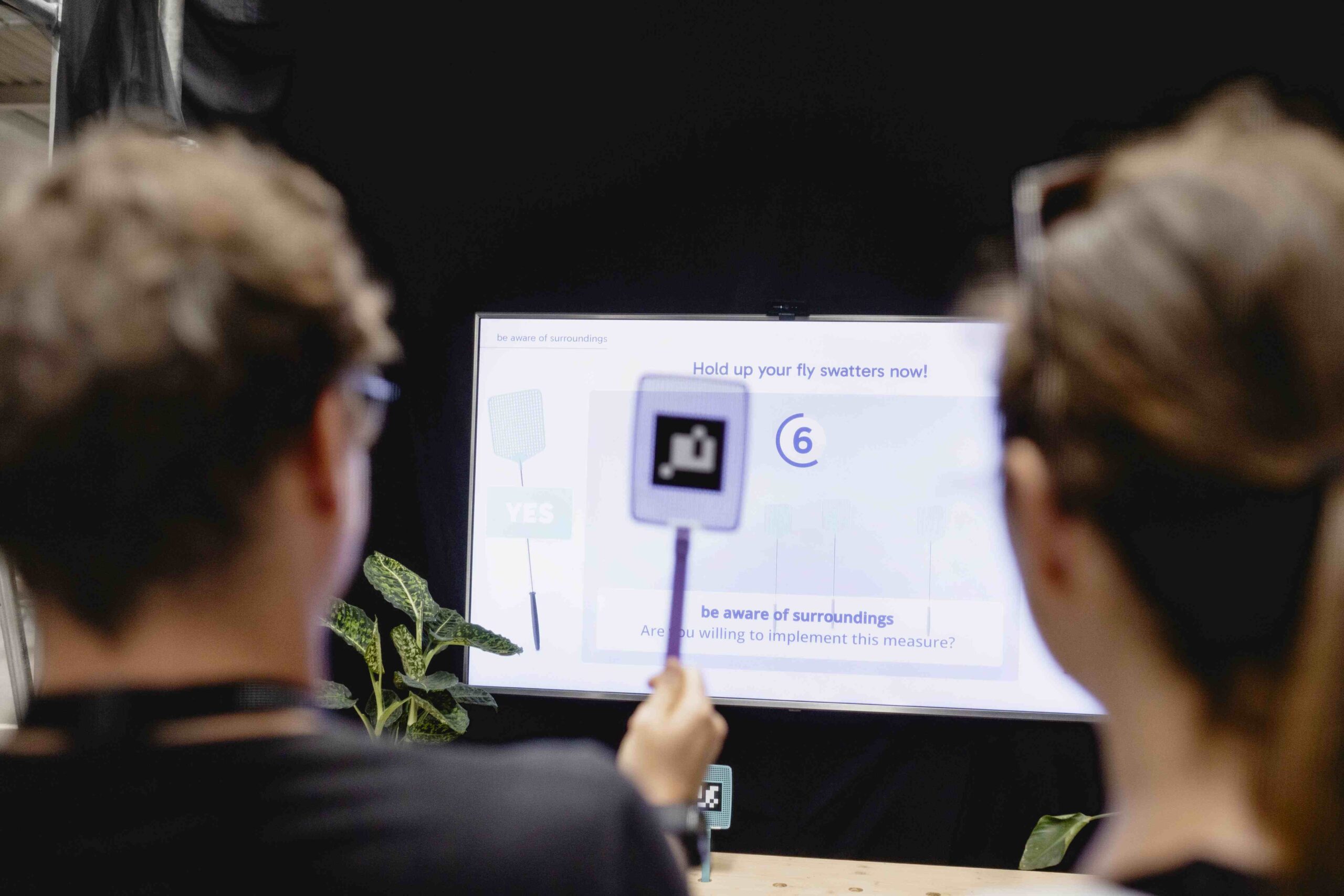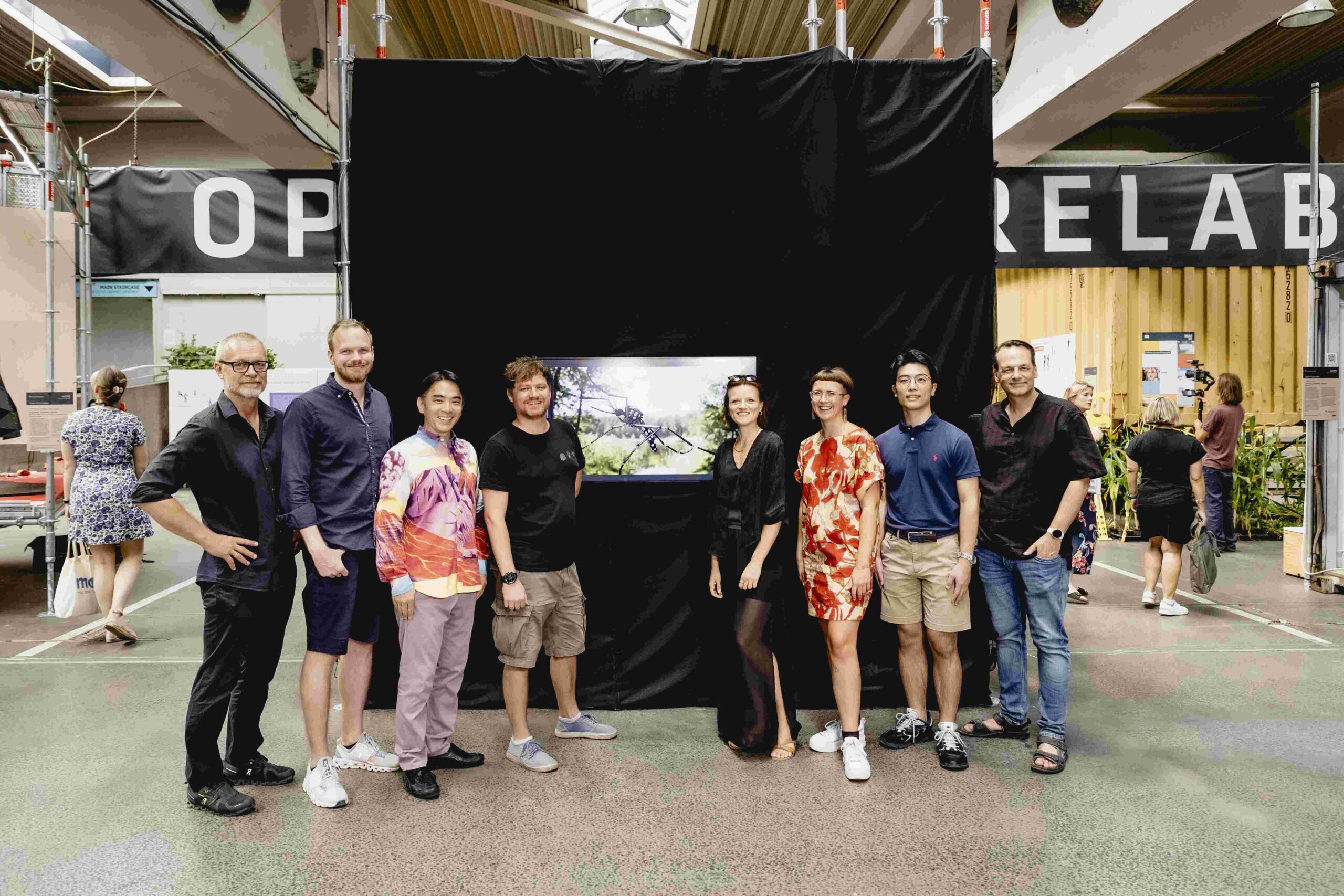Buzzing noises, an inconspicuous window, tropical humidity, and the impression of being chased: Buzz Swatters: Playful Pandemic Prevention addresses the collective action problem of infectious diseases in an innovative and playful way.
Buzz Swatters: Playful Pandemic Prevention is the second collaborative project of the Collective Transformation Lab between AI start-up Godot and the Ars Electronica Futurelab. It was presented to the public in the exhibition area Open Futurelab in POSTCITY at the Ars Electronica Festival 2024, inviting visitors to play and think about collective behavior change – utilizing multiple storylines, generative AI, and sensor technology.
Upon entering the Open Futurelab area, Festival visitors were quickly drawn in by an animated mosquito character that tried to get the attention of passers-by. Following their movement using motion tracking with a laser tracking setup, it attempted to engage them in conversation while adhering to scripted behavior change techniques. If an approach failed to convince visitors to play the game, the mosquito quickly adjusted its strategy, creating a dynamic encounter.
Stepping inside the mosquito net, participants were transported into a fictional pandemic breakout scenario within POSTCITY. To prevent the spread of this mosquito-borne disease, players were encouraged to embrace behavior changes that benefit community health, simulating real-world decision-making in public health crises.
Multiple storylines created with AI
After setting the scene, an AI-generated game host invited visitors to grab a fly swatter as their voting tool to make democratic decisions. The game host guided them through the fictional storyline, explaining the necessary measures to bring the pandemic to a halt. Just like in a real-life scenario, the outcome depended on collective decisions, and the players’ willingness to apply the suggested health measures influenced the policy changes made to enforce the measures.
To support this multi-threaded storyline with different perspectives and various possible outcomes, the Futurelab team created multiple AI-generated avatars with Synthesia, enabling rapid adaptation of multiple narrative versions. Additionally, generative video AI RunwayML was used to produce dynamic video content for the game.
Experience the significance of collective efforts
Buzz Swatters: Playful Pandemic Prevention motivates citizens to adopt proactive measures for the common good, even in situations where immediate personal benefits may not be apparent – emphasizing the interconnectedness of individual actions and their broader impact on community well-being.
The work was developed within the multi-year Collective Transformation Lab between Godot and the Ars Electronica Futurelab that aims to deeply understand human behavior to provide self-reflective, personalized strategies for social challenges of the advancing 21st century.
This project was part of the Open Futurelab at the Ars Electronica Festival 2024.
Credits
Ars Electronica Futurelab: Kerstin Blätterbinder, Roland Haring, Denise Hirtenfelder, Susanne Kiesenhofer, Otto Naderer, Hideaki Ogawa
PARTNER: Godot Inc.: Ken Moriyama, Ryo Onizawa, Yusuke Takagi, Masashi Ohtani
Godot GmbH: Go Suzui, Johannes Heizer

